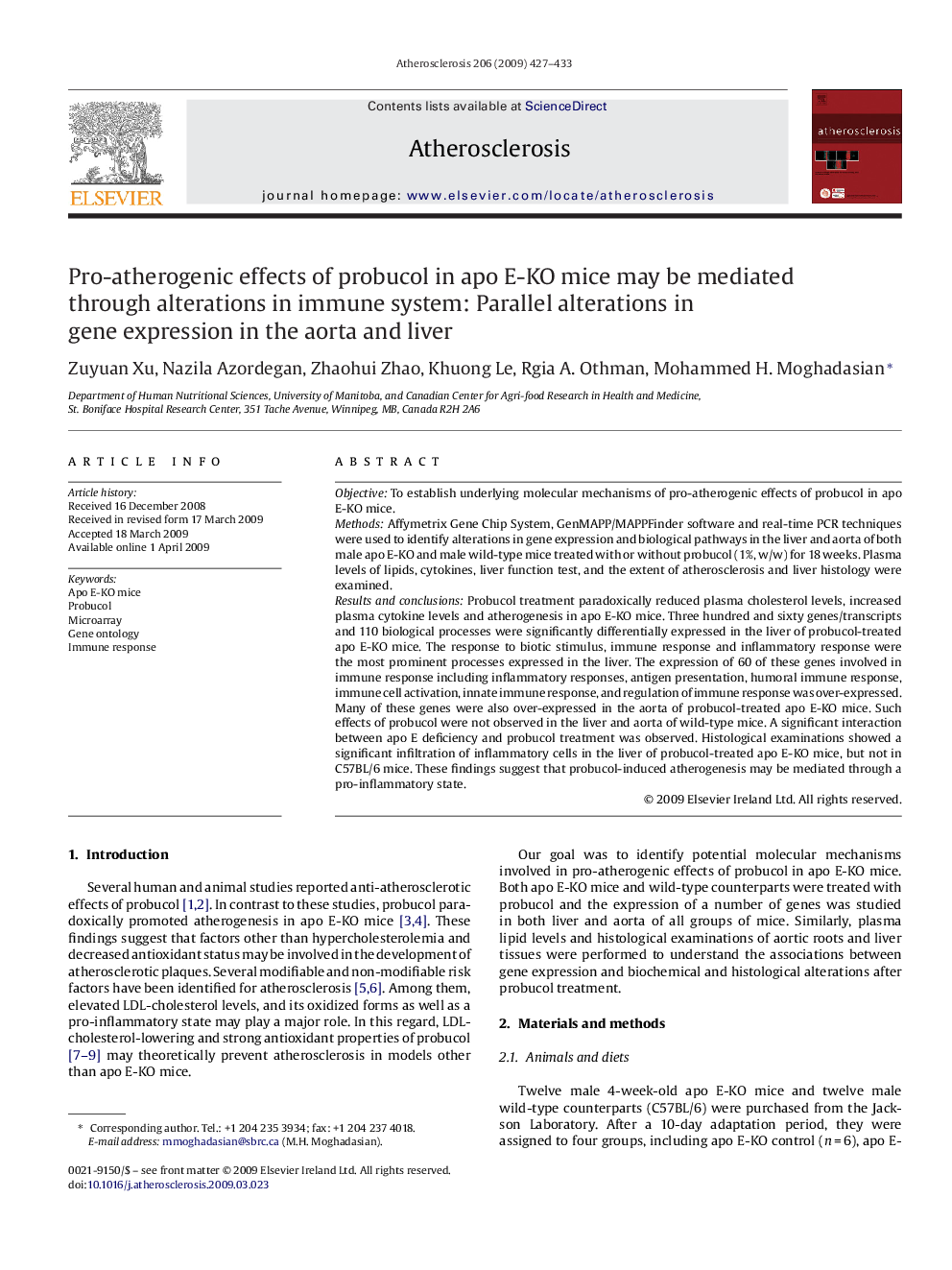| Article ID | Journal | Published Year | Pages | File Type |
|---|---|---|---|---|
| 2893425 | Atherosclerosis | 2009 | 7 Pages |
ObjectiveTo establish underlying molecular mechanisms of pro-atherogenic effects of probucol in apo E-KO mice.MethodsAffymetrix Gene Chip System, GenMAPP/MAPPFinder software and real-time PCR techniques were used to identify alterations in gene expression and biological pathways in the liver and aorta of both male apo E-KO and male wild-type mice treated with or without probucol (1%, w/w) for 18 weeks. Plasma levels of lipids, cytokines, liver function test, and the extent of atherosclerosis and liver histology were examined.Results and conclusionsProbucol treatment paradoxically reduced plasma cholesterol levels, increased plasma cytokine levels and atherogenesis in apo E-KO mice. Three hundred and sixty genes/transcripts and 110 biological processes were significantly differentially expressed in the liver of probucol-treated apo E-KO mice. The response to biotic stimulus, immune response and inflammatory response were the most prominent processes expressed in the liver. The expression of 60 of these genes involved in immune response including inflammatory responses, antigen presentation, humoral immune response, immune cell activation, innate immune response, and regulation of immune response was over-expressed. Many of these genes were also over-expressed in the aorta of probucol-treated apo E-KO mice. Such effects of probucol were not observed in the liver and aorta of wild-type mice. A significant interaction between apo E deficiency and probucol treatment was observed. Histological examinations showed a significant infiltration of inflammatory cells in the liver of probucol-treated apo E-KO mice, but not in C57BL/6 mice. These findings suggest that probucol-induced atherogenesis may be mediated through a pro-inflammatory state.
